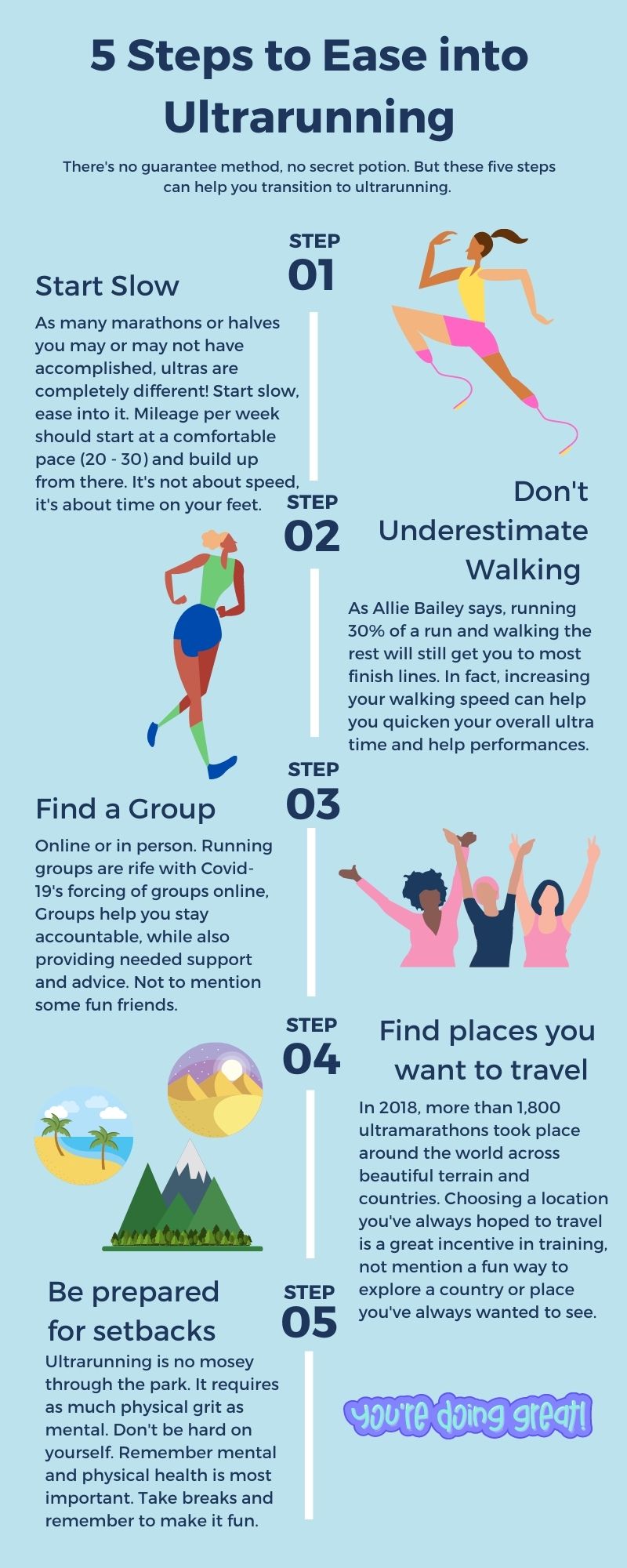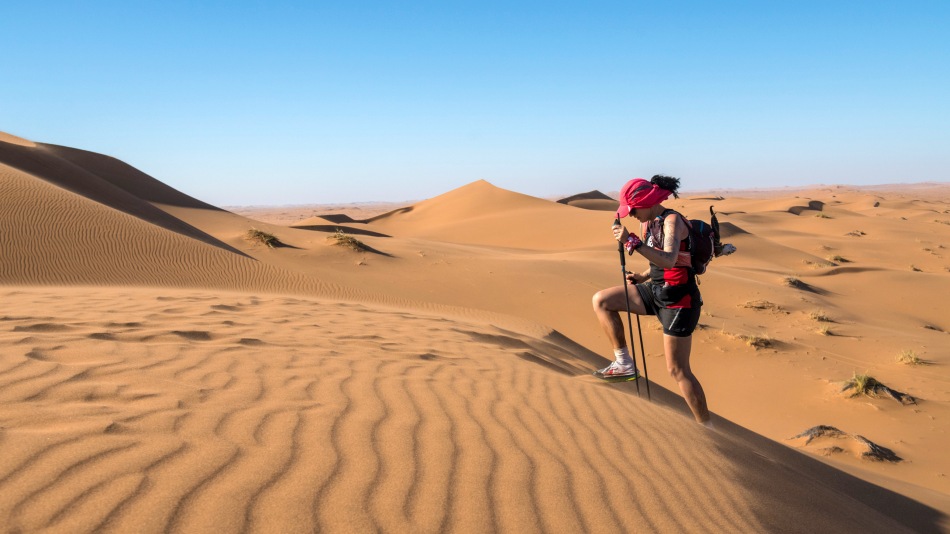The global pandemic’s lockdown sparked a surge of women to the trails. In the wake of women’s movements across the world, female ultrarunners see opportunity not only for more women to enter the trails but for mounting momentum in female empowerment.
For three days, Allie Bailey woke up and she had a job to do. That job was to get from A to B by any means possible. She could do that. As she says, it was a very basic thing – except for the bit about running 100 miles across a frozen lake in the remote corner of northwest Mongolia, or the bit about avoiding frostbite, wolves, and possible lynx.
“My friend asked me, ‘Do you want to go on an adventure? I said sure. He said, ‘Great. It’s 100 miles across a frozen lake.’ And I just thought, huh…” Bailey pauses, her jet-black hair tangled in a bun and her tattoos dancing on her arms in the afternoon June sunlight. “I don’t think I can do that. But I’ll give it a go.”
Two years later, Bailey reminisces the trip with that same humility and, with any plans of adventure outside her home near Glastonbury momentarily freezer-stored, a hint of nostalgia. The temperature dithered somewhere near -40 degrees. Sunlight was rare. Food came from a hole in the ice, provisions, or meat scavenged by locals aiding their trips. Bailey, though, won’t tell you this first. She won’t even mention she became the first woman to ever cross Lake Khovsgol by foot. Instead, she’ll tell you that when she set off with eight men across 100 miles of one of the world’s 17 ancient lakes ageing over two million years old, she came with little qualifications. She agreed partly for a laugh at herself, but mostly to escape a career in the music industry that felt more like a chronic outtake for her male co-workers. She was depressed, distracted and exhausted.
But there trekking the Mongolian wilderness, Bailey was the only woman, and things were different.
“I wasn’t judged for being a woman. I was just another person taking part in this epic adventure, and it was about me. It was all about me finding the power to go forward and do this thing,” she says.
“When I came back from Mongolia, I realised life was a lot simpler than I experienced. There wasn’t all this other shit going on that affected me. That I wasn’t good enough or my opinion was invalid. Or a worker told me I couldn’t have a pay raise. Or it’s okay for my boss to put his hand on my ass at a night club because I’m lucky to have my job. None of that. I need to be treated as an equal, and I need to have respect for myself.”
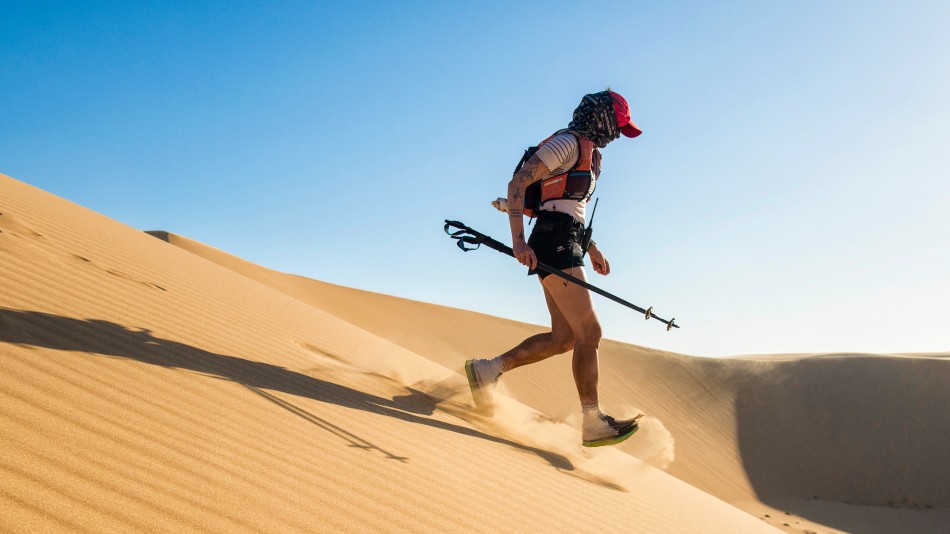
A recurring phrase that surfaces when you ask ultrarunners anything about ultrarunning is that it’s simply more than one foot in front of the other. According to 27-year-old American ultrarunner and victims advocate Dani Filipek, it’s one foot in front of the other in the same way she walks into a courtroom to stand beside a victim. Or when she finds herself pooping blood and throwing up in her shoes 100 miles into last year’s 340-mile run down Michigan to raise awareness for sexual assault – which she will relate with unbridled animation and detail.
When you actually go out and do it, it empowers you. And sometimes I don’t like that word, but it does. It validates you as a human being, not just as a woman. To go out and do other things in your life that you would not otherwise go out and do.”
Allie Bailey
“I look at life like I look at ultrarunning: How to rebound through some really shit stuff that ultrarunning is,” the Cayuga Trails 50-mile champion and 2016 Olympic Trials Qualifier says from her home in Michigan, USA. Instead of her usual racing braid, her dirty-blonde hair falls haphazardly around her face and shoulders. Less than 20 days ago, she gave birth to a baby boy. Sleep has been for want. But of all ultrarunning’s baffling aspects – the interminable lengths, the stomach-lurching heights, the mid-race Coca-Cola benders and hallucinations – Filipek says the most baffling is its ability to transform all of that into a gauge of sorts.
“You’re going into battle, going into court with survivors, going into a session. I’m not going to pretend they’re exactly the same because they’re not. But when Plan A, B and C aren’t working, how do we get through this tough spot in our lives? How do we keep at it?” she says. “That’s an ultra thing, a huge hodgepodge of craziness that works well together.”
In the wake of more women questioning traditional power dynamics and pre-set barriers in society, what Politico dubbed the “Year of the Woman”, the translation from trail to society bears more importance than ever, Bailey says, with the notion of “I can” on the trail saturating into other areas of life.
Upon returning from Mongolia, Bailey quit her job. She worked as a freelance project manager and head female ambassador to Rat Race, the UK’s largest event operator. Since, she trekked the Panama jungle, ran under an abyss of stars in the Namibia and most recently kickstarted Ultra Awesome, an ultrarunning/adventure community dedicated to inspiring ordinary people to try impossible feats rather than pit them in competition. While not exclusive to any one gender, Bailey hopes to build a springboard to upend women’s self-perception by providing that same frame of reference Mongolia did for her. Her first project last year led a group of nine women 185 miles to peak the Hesperides Mountains last year, marking the first people, male or female, to do such a thing.
“I wanted to take just women because I want to show women that they can do this even though it’s never been done before. When you actually go out and do it, it empowers you. And sometimes I don’t like that word, but it does. It validates you as a human being, not just as a woman. To go out and do other things in your life that you would not otherwise go out and do.
Endurance and adventure running are the only things that have ever taught me that.”
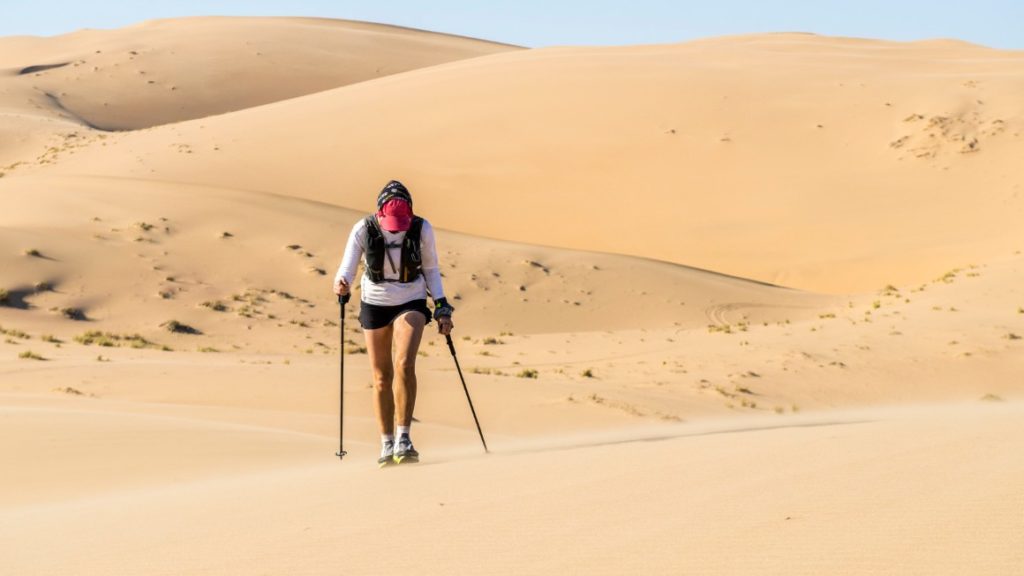
Of course, it’s easier said than done. In the last 23 years, the niche world of ultrarunning exploded by 1676%, turning the once stomping ground of “fat, middle-aged men who couldn’t run very fast”, as Scottish ultrarunner and Team GB 24-hour Championship racer Debbie-Marie Consani colours it, to a stronger, faster, albeit more female one, with the likes of Jasmin Paris and Camille Herron striking international headlines. The petite, blonde mother of one says it with a wry smile but quickly points out that women have in no way commandeered the trails. Women total just 23% of ultrarunners internationally; in adventure, even less so. According to Filipek, the blame falls not on being a woman, but on a two-letter word operating as a barrier.
“For a long time, we were told no, like your uterus is going to fall out. You’re going to die if you do anything over 800,” Filipek says.
Bailey takes it one step further.
“Women are told no in every aspect of their life, from when they are children to when they go into work to when they get married to when they have their own children. There is a prescribed set of rules for women their whole lives. And when it comes to women in adventure, particularly women with children and families, they don’t believe they are allowed to take time away from what they think they are bred to do to do something for themselves.”
Things are changing, but society’s perception of women is just still far behind. I’m not going to burn my bra and start complaining. I’m not a die-hard feminist. But the way people see women following their dreams…that hasn’t changed.”
Debbie-Marie Consani
In 2020, ultrarunners averaged between 35 and 45 years old. According to Consani, women at that age often have fulltime jobs, childcare and housework, what American writer and economics professor Arlie Hochschild labelled the “second shift” in the early 1990s. Nearly 30 years on, that portrayal of a double burden still lurks. Finding time to train not only feels impossible but selfish. Those who do, like Consani, feel other mothers’ eyes deigning her as skirting motherly duties to “gallivant in the hills.”
“My son is 11 now, so he’s a little bit more independent but even still, he needs a parent with him at all times,” Consani says. “When he was younger, I’d be at the school gates, someone would come up to me and say, ‘Oh, I saw you were away…again…out there running.’ And I’m like, I know you’re judging me and making out that I’m a bad mother.”
Other times when spotted child-less, Consani says the judgement flits into the question: Is Marco (her husband) babysitting? If someone bumped into her husband without their son, Consani says, the question would not work in reverse. Consequently, women can subconsciously impose limitations when harangued by societal pressures, stifling their belief to step off the trodden path.
“It’s kinda like I know I could go run the West Highland Way and regardless of what happens, I know I could finish it,” Consani says. “I know that sounds very arrogant but I don’t want to go into a race when I know I could finish it. If success is inevitable I’m not interested, which is life, really.
“Things are changing, but society’s perception of women is just still far behind. I’m not going to burn my bra and start complaining. I’m not a die-hard feminist, but the way people see women following their dreams…that hasn’t changed.”
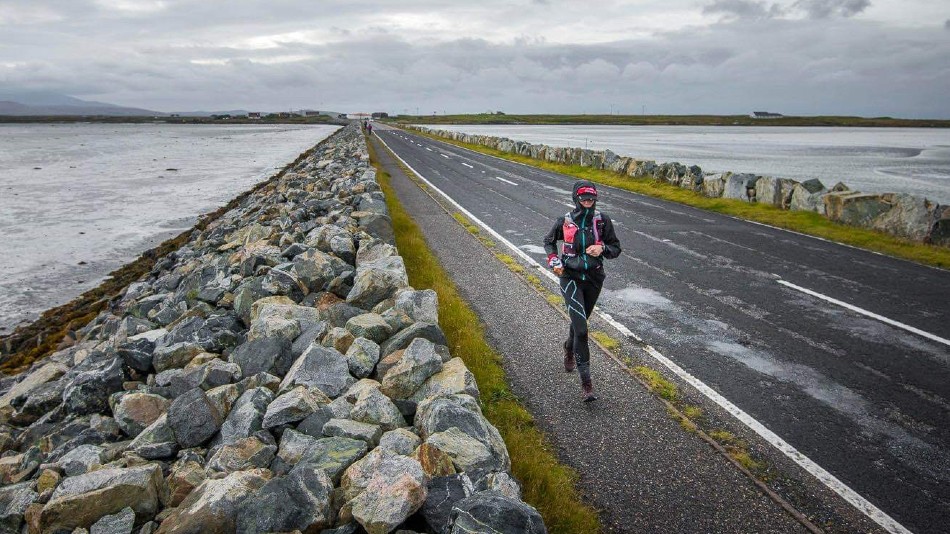
Filipek believed following her dreams required entering the trails early. Taking time to tackle her own adventures, she said, warranted a small window before traditional female roles came knocking.
“That’s the misconception, there’s not enough time. But I think you’re seeing that change – ” Almost on cue, Filipek’s new-born cries in the room over. He needs his bottle. Filipek disappears down the hall in fuzzy slippers, returning less than a minute later: “Unfortunately, Dads don’t have nipples.” She pauses and smiles to herself. “Well, they do, but they don’t have…They aren’t women. Women can do anything.”
How do we have this conversation to enact a betterment to our society? To have that life and that equity that we want and deserve? Whether that’s in sport or that’s in life or workplaces, how do we get there?”
Dani Filipek
Filipek says it with a coy laugh, but when it comes to considering herself an anomaly, she briskly rejects it. Over-sensationalising ultrarunning threatens to yank away the sensational strength of the average women, she says. In fact, if you call Bailey anything other than normal, she’ll insist otherwise. She eats normal food, ravishes in a good swear word, will head bang to any good rock’n’roll, and just last night felt the world seemingly caving in on her. Now, un-showered at 3 o’clock in the afternoon, Bailey finds herself with a perennial to-do list and two dogs to run. That, she says, is her point.
“Ultrarunning is the ultimate mindfulness. You have to address yourself. You have to be accountable to yourself and you have to be honest with yourself,” she says. “It happened to me in Panama. I was like I can’t fucking do this anymore. I’m too hungry. I hate this place. I’m exhausted. I’ve lost half my body weight. I hate myself. Then I was like, ‘What are you fucking doing? You’re doing it again. You’re beating yourself up. You’re fucking extraordinary, Allie. Look at what you’re doing.’
It’s a moment that Bailey falls back on whenever she finds herself up against something she feels she can’t handle. It might be different circumstances, but the grit needed to get out of it is the same.
“I think that’s what makes it amazing,” she says, “especially for women.”
Lockdown’s passing months have particularly levelled the playing field, Bailey says. Shared childcare in homes and effective remote working gave more women with “second shifts” newfound time. According to RunRepeat, people exercising 1-2 times per week usually increased exercise by 88% over lockdown. Bailey says women comprise a large portion of those achieving new feats and sees no halt once lockdown eases.
“I think it has really put to their heads. When we get back on it, women will a lot more likely say, ‘You know what? I can do this. Doing this makes me happy. I want to do this once or twice a year.’ To know that they have it in them to do it as well. To have met all these people through various communities who will support them. It’s going to make a huge difference.”
And I’m like this is like life. You fucking shoot off, you don’t give a shit about anybody else, whereas if you are slow, steady, thoughtful and deal with the parts of yourself that don’t believe you can do something, you get so much further.”
Allie Bailey
Maintaining momentum to spread equity elsewhere will demand work, Filipek says. When considering ultrarunning’s current climate, women still face inequality, from disparate prize money and recognition to some men taking less kindly to a woman’s passing and opportunities still floundering to make a difference. That treatment reflects latent social mores, Filipek says. Tuning into better conversations on the trails can illicit crucial change off, but it’s only the beginning.
“That’s one of the biggest parts about changing that faux equitable word, but we need more than equity because we’ve been put down for so long, and people of colour too,” she says. “How do we have this conversation to enact a betterment to our society? To have that life and that equity that we want and deserve? Whether that’s in sport or that’s in life or workplaces, how do we get there?”
Filipek calls for normalising representation of minority groups as racers, coaches and race directors to open doors into areas outside the sport, as well as acknowledging ubiquitous needs for better procedures, protocols and prize money to increase opportunities for women in the sport. Bailey also points to hosting more only female adventures and providing better media platforms to showcase those efforts. Ultimately, both women say ultrarunning presents a unique blueprint, one that is luring road racers to its trails. Its “stripped-back human connection” demands an aura centred on communal support and understanding, they say, one that transcends notions of gender to foster a community focused on equal opportunity rather than competition. More women participating in that connection, they argue, will translate elsewhere.
“I think society is a bit afraid of women who go out and do this stuff,” Bailey says. “Sometimes I do this stuff, and I’m like, you know what? That was quite easy. Because all I had to do was start saying no to things I should have been saying yes to. That’s all I had to do.”
